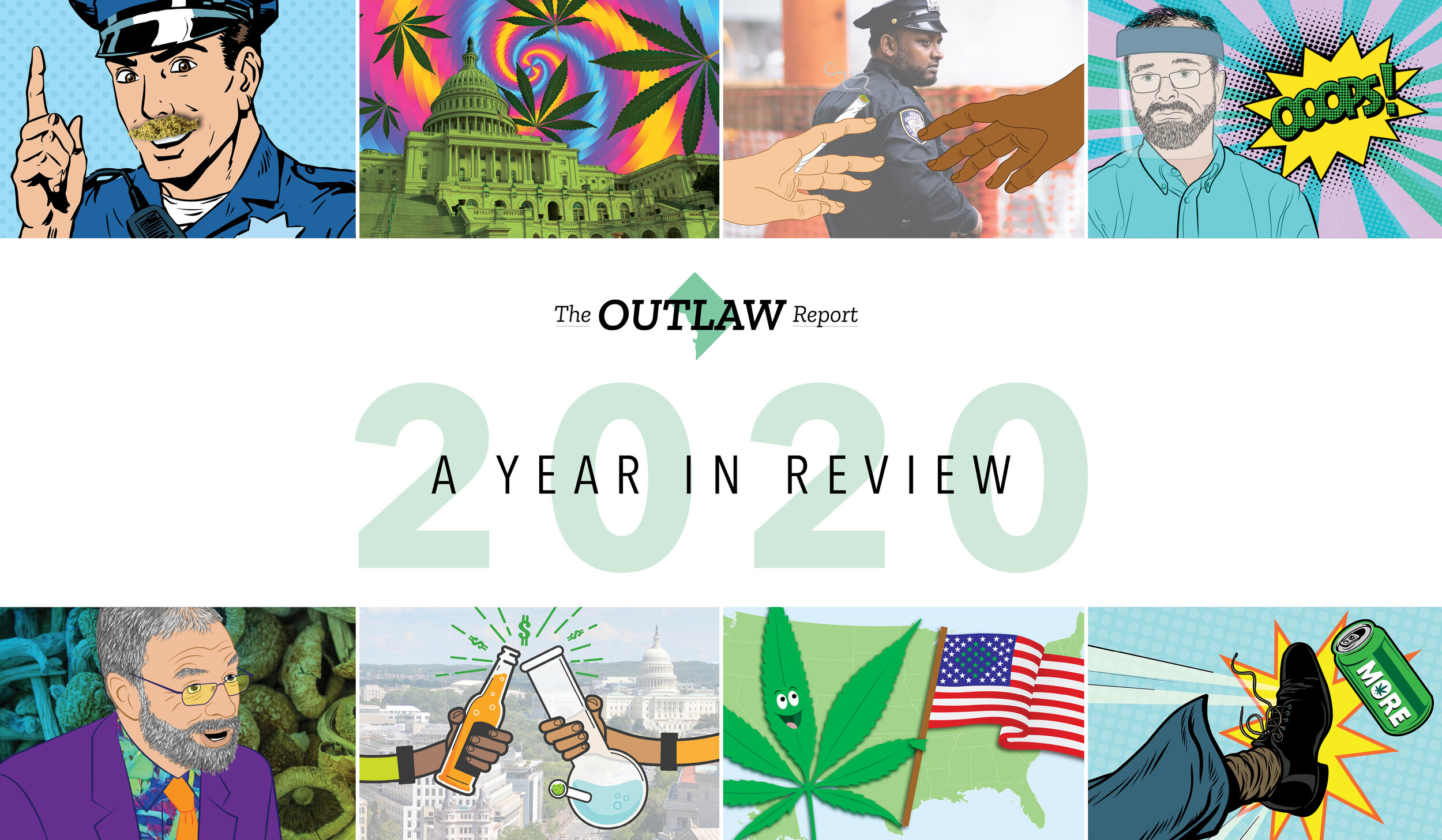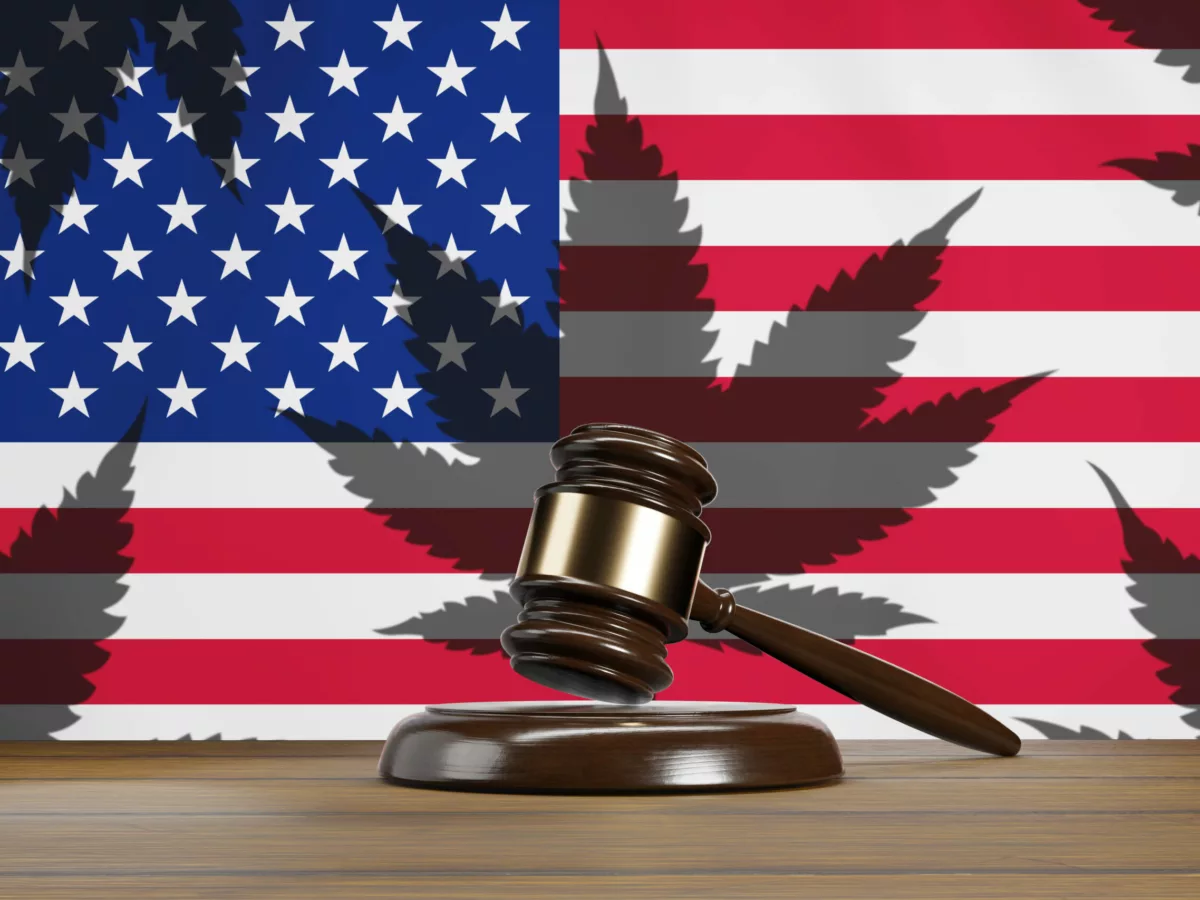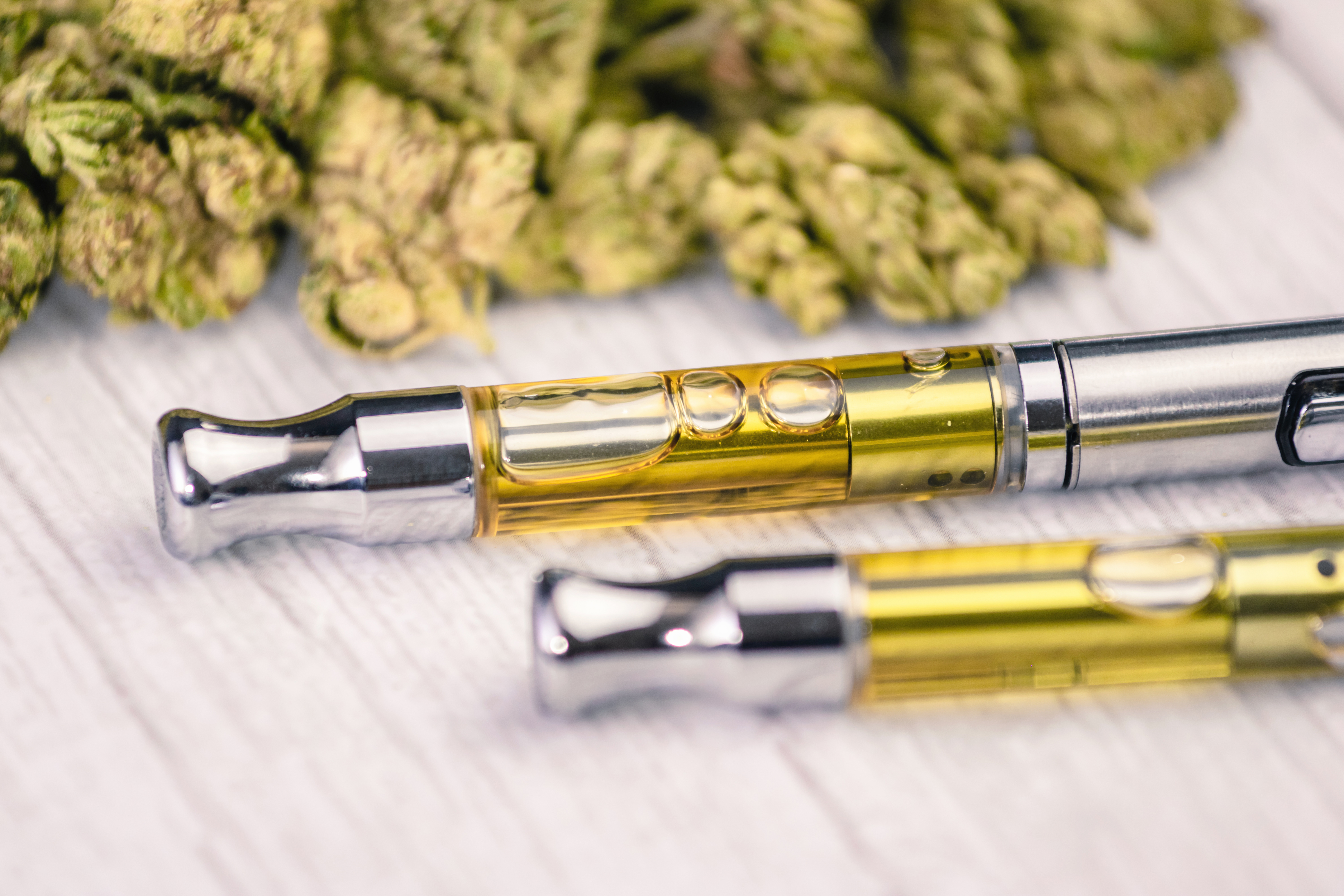The year in cannabis in Washington D.C. was one of incremental change with a number of policies and initiatives put forth that will likely lead to major reforms later on. It was appropriate for 2020, a year in which due to COVID-19 and widespread mismanagement of the pandemic, the District was in emergency mode much of the time with major drug reform deferred.
One encouraging first step towards making a regulated commercial cannabis industry in D.C. a possibility was the The Alcoholic Beverage Regulation Administration (ABRA) formally taking over the medical cannabis program from the Department of Health. That change was authorized through the Medical Marijuana Program Administration Amendment Act of 2020 as part of Mayor Muriel Bowser’s 2021 budget. That budget was approved in July and ABRA’s takeover of D.C.’s Medical Marijuana and Integrative Therapy went into effect on October 1. In total, $360,000 in local funds, $597,000 in special purposes revenue and six full-time positions were moved from DOH to ABRA. Fees collected in relation to cannabis are held in a special Medical Cannabis Administration Fund rather than a miscellaneous fund, which was previously the case.
Responses from stakeholders in the industry about the management change were positive across the board. Related: The House Of Representatives passed the Marijuana Opportunity Reinvestment and Expungement Act (The MORE Act), which would decriminalize cannabis and remove it from the list of Schedule I drugs, making it easier for individual states to determine its legal status. For D.C., where cannabis is already legal, removing cannabis from Schedule I would nevertheless render the infamous “Harris Rider” useless. The Senate still must vote on The MORE Act.
As both landmark local legislation and as a model for grassroots drug reform organizing, D.C. voters voting to overwhelmingly pass Initiative 81—The Entheogenic Plant and Fungus Policy Act of 2020—which would decriminalize plant-based psychedelics. It received 76% of the vote and the initiative’s success is mostly due to the group Decriminalize Nature D.C., who found creative ways to poll voters, send out ballots, and garner support for something many thought would never get the votes required all during the COVID-19 pandemic.
The next step is for D.C. City Council to enact the bill then transfer to Congress for approval. Congressional approval is required for any piece of D.C. legislation because Congress controls its finances. As with other D.C. cannabis legislation, it could be challenged by the “Harris Rider”, which prohibits commercial cannabis.
COVID-19 also affected patients’ access to cannabis dispensaries and required dispensary owners to switch up their approach. But by being designated as “essential businesses” during the pandemic, medicinal cannabis dispensaries were able to make deliveries for the first time—effectively putting them on the level that grey market cannabis businesses operating through the “gifting” loophole have always existed. With many people stuck inside, D.C. Mayor Muriel Bowser expanded delivery hours not once, but twice through emergency rulemakings in April and October. Bowser’s April 18 rulemaking allowed each dispensary one delivery vehicle and deliveries were permitted between 11am and 7pm. A driver could make up to 10 deliveries in one drive and the delivery vehicle cannot have more than $5,000 in cash or product in it at once. Restrictions were loosened in October when ABRA issued two rulemakings after assuming control of the medical cannabis program from the Department of Health. Dispensaries are now allowed to have up to three delivery vehicles and delivery hours were expanded to 9am through 9pm.
Medicinal cannabis dispensary owners in D.C. have long argued they should be able to deliver and within the industry, there are hopes that these rules announced amid COVID-19 will remain even after the pandemic.
And years into D.C. legalizing cannabis, dispensary workers have finally organized and joined a union. DC Holistic Wellness joined United Food & Commercial Workers (UFCW) Local 400 on October 21, making it not only the first Black owned dispensary in D.C., but the first to unionize as well. The contract signing was held outside of DC Holistic Wellness and was attended by owner Norbert Pickett, dispensary employees, union representatives, Advisory Neighborhood Commissioner Anthony Lorenzo Green (Ward 7) and members of the media. Some of the provisions of the five-year bargaining contract include protection from being fired or disciplined without just cause; guaranteed pay increases every six months; paid time off including Election Day; a grievance procedure to resolve disputes with management; health care; and retirement benefits.






